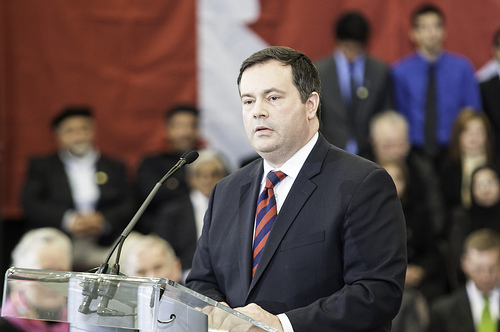The Minister of Citizenship, Immigration and Multiculturalism, Jason Kenney, announced on February 14, 2013 that the list of Designated Countries of Origin is being expanded to include an additional eight countries. The Designation came into force on February 15, 2013.
The Designated Country of Origin (DCO) is part of the new refugee system that came into effect in Canada on December 15, 2012. The Protecting Canada’s Immigration System Act gives the authority for the Minister to designate countries of origin for fast tracking of refugee claims. The designation also restricts the rights refugees to obtain work permits who come from the DCO’s that generally “offer state protection, have active human rights and civil society organizations, and do not normally produce refugees.”
The second list of designated countries includes: Mexico, Israel (which excludes Gaza and the West Bank), Japan, Norway, Iceland, New Zealand, Australia, Switzerland.
Including the designation of these eight countries, effective February 15, 2013, 35 countries appear on the designated countries list, which already includes most countries in the European Union (EU), Croatia and the United States.
Under the new refugee system, all eligible asylum claimants from designated countries continue to receive a full hearing on the individual merits of their claims at “the independent, quasi-judicial Immigration and Refugee Board of Canada (IRB) within 30-45 days.” Claimants from non-designated countries are expected to receive a hearing within 60 days. Failed claimants from designated countries may still appeal to the Federal Court to review a negative decision. Claimant’s from DCO’s do not have access to the newly-created Refugee Appeal Division at the IRB.
“To be considered for designation, a country must meet objective criteria related to the number of finalized refugee claims that Canada receives from that country. For countries with 30 or more claims in any consecutive 12-month period during the three years preceding designation, quantitative criteria are used. At least 60 percent of claimants from the country must have withdrawn and abandoned their own claims, or at least 75 percent of claims from a country have been withdrawn, abandoned, and rejected by the IRB.”
In the case of countries with few refugee “claims (namely, no consecutive 12-month period with 30 or more finalized claims during the three years prior to designation), objective qualitative criteria are used, including the existence of an independent judicial system, recognition of basic democratic rights and freedoms, and the existence of civil society organizations.”
To quote the Department’s Press Release, “Many developed democracies use a similar authority to accelerate asylum procedures for the nationals of countries not normally known to produce refugees. These states include the United Kingdom, Ireland, France, Germany, the Netherlands, Norway, Switzerland, Belgium and Finland, among others. Most EU states also have accelerated procedures for the nationals of other member states.”
The United Nations High Commissioner for Refugees, Antonio Guterres, has stated “there are indeed Safe Countries of Origin and there are indeed countries in which there is a presumption that refugee claims will probably be not as strong as in other countries.” Mr. Guterres has also accepted the legitimacy of providing expedited processing for refugee claimants from countries generally considered safe.
Mexico, which was added on February 15, 2013 is experiencing severe human rights abuses but most of these problems relate to drug trafficking. These difficulties are considered crime related and therefore not covered under the 1951 Geneva Convention on Refugees.
Israel was also added to the DCO list as a “safe country” on February 15, 2013. However, the West Bank and Gaza were not included. It is interesting to note that Britain has included Israel on a list of 28 countries whose human rights record is of ‘concern’ to the British government.
The criticism from the British Foreign Office will likely not make the “Jewish State” happy, as it “proudly boasts it is the only democracy in the Middle East, and considers the UK an ally amid an increasingly critical Europe.”
The British Foreign Office quarterly report published on January 24, 2013 reviewed the period between October and December 2012. To quote an article that appeared in the British Telegram, “Israel sits in the company of Afghanistan, Belarus, Iran and Zimbabwe — countries the foreign office considers to have a human rights record ‘of particular concern’.” The Palestinian Authority is also included in the list. However, the Foreign Office Report notes, “Israel’s refusal to deliver Palestinian customs revenue has undermined the leadership’s capacity to enforce law and order.”
The Report’s four-page entry on Israel focuses on November’s 2012 bombing campaign against the Gaza Strip and also on plans to greatly expand Israel’s settler presence in the West Bank.
Edward C. Corrigan is a lawyer certified as a Specialist in Citizenship and Immigration Law and Immigration and Refugee Protection by the Law Society of Upper Canada in London, Ontario, Canada.
Photo: michael_swan / flickr



